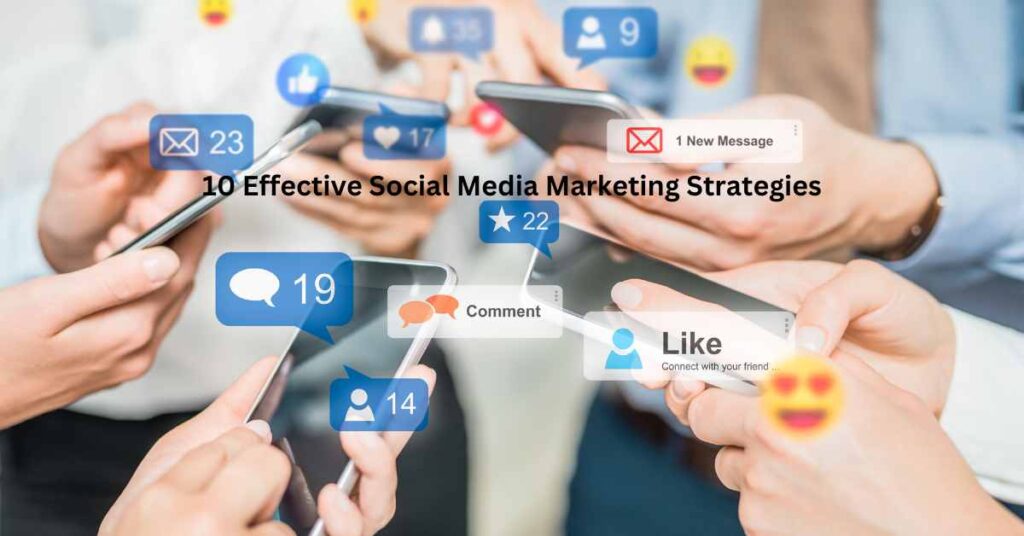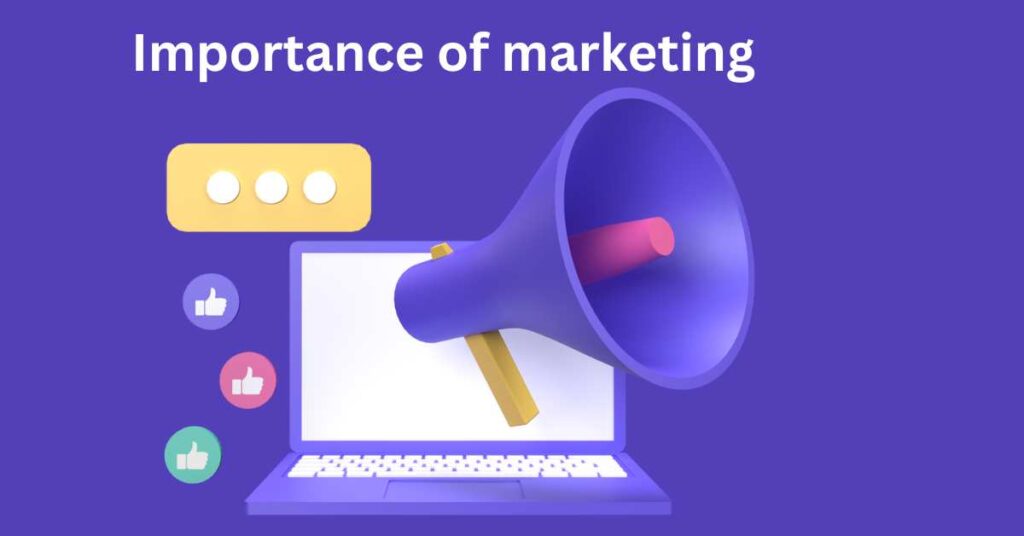Last updated on June 28th, 2024 at 03:32 pm
In today’s world of ever-increasing competition and rapid technological advancements, marketing plays a crucial role in the growth and success of any business. In this blog, we will examine what marketing is, its importance in the business landscape, and the different components of a marketing strategy.
Table of Contents
Introduction to marketing in business
Marketing refers to the actions taken by a business to promote its products or services to its target audience. Today, marketing has become an essential aspect of business strategy due to its ability to create awareness, drive loyalty, and ultimately increase sales.
In today’s business world, the role of marketing is pivotal. Marketing is not only a business function, it is the lifeblood of the company’s success.
The Role of Marketing in Business
Marketing serves several critical functions in a business: understanding the customer’s needs and wants, developing products, and services that meet those needs, and establishing a unique market position.
A. Understanding the customer’s needs and wants
Market research and customer analysis: Conduct research to understand market trends, consumer behavior, and preferences.
Identifying target markets and segments: Identify specific segments of the market that may be interested in your product, and tailor marketing efforts to those groups.
B. Creating and developing products or services
Product research and development: Conduct research and collect feedback from customers to develop products that meet their needs.
Packaging and branding considerations: Develop product packaging and branding elements that differentiate your product from competitors.
C. Pricing strategies and positioning
Determining product pricing: Use market research to determine an appropriate pricing strategy.
Components of a Marketing Strategy
Establishing a unique market position: Use marketing efforts to establish the company’s unique value proposition in the market.

A comprehensive marketing strategy comprises market segmentation and targeting, the marketing mix (4Ps), and digital marketing.
A. Market segmentation and targeting
Identifying customer segments: Identify specific groups of customers who share the same needs, behavior, and preferences.
Tailoring marketing efforts to specific segments: Develop marketing efforts that cater to the needs and preferences of each specific customer segment.
B. Marketing mix: Product, Price, Place, Promotion (4Ps)
Product: Design, features, and benefits: Develop the product’s design and features to cater to customer needs effectively.
Price: Setting pricing strategies: Determine the optimal price point for your product based on market research.
Place: Distribution channels and logistics: Determine the most effective channels to distribute and sell your product.
Promotion: Advertising, sales promotions, public relations: Develop and execute effective marketing campaigns.
C. Digital marketing and online presence
Importance of digital marketing in the modern era: Develop a robust online presence to reach a broader target audience.
Leveraging online platforms and social media: Use social media and other digital platforms to interact with customers and promote products.
Key Marketing Concepts
Branding, customer relationship management, and marketing communication are essential marketing concepts that every business should understand.
Branding, customer relationship management, and marketing communication are essential marketing concepts that every business should understand.
A. Branding and brand management
Creating and maintaining a strong brand identity: Develop and maintain a strong brand identity that resonates with customers.
Brand equity and customer loyalty: Use branding efforts to increase customer loyalty and establish a positive brand image.
B. Customer relationship management (CRM)
Building long-term relationships with customers: Develop long-lasting relationships with customers by providing personalized service.
Customer retention and loyalty programs: Develop loyalty programs and other initiatives to retain customers.
C. Marketing communications
Effective messaging and communication channels: Develop effective messaging that resonates with your target audience and use appropriate communication channels.
Integrated marketing communication (IMC) approach: Use a diverse range of communication channels to reach customers and effectively promote products.
Measuring Marketing Effectiveness
Measuring marketing effectiveness is crucial to optimizing marketing strategies and achieving business objectives.
A. Key performance indicators (KPIs) in marketing
Sales revenue and market share: Use sales revenue and market share to measure the success of marketing campaigns.
Customer acquisition and retention rates: Use customer acquisition and retention rates to understand how effective marketing efforts are reaching new and existing customers.
B. Marketing analytics and data-driven decision-making
Collecting and analyzing marketing data: Collect and analyze data to gain insights into the effectiveness of marketing efforts.
Using insights to optimize marketing strategies: Use insights from marketing analytics to optimize marketing strategies and achieve business objectives.
You may also like to ask:
Marketing is defined as the actions taken by a business or company to promote its products as well as services to its target audience or users. It is essential in business because it creates awareness, helps increase sales, and drives loyalty.
Marketing helps to serve several critical functions in a business. It helps in understanding the customer’s needs and wants, making products or services that meet those audience needs, and establishing a unique market position.
Modern businesses need digital marketing to build a strong online presence and reach a wider audience, thus it is crucial. It makes good use of social media and online platforms to engage with customers and market items.
Advertising and promotion are the important components of marketing. Marketing is not only about advertising and promotion. Marketing is the whole process of market research, development of the product, building brand identity, distribution strategies, pricing, and customer relationship management.
The primary purpose of marketing in the business is creating, communicating, and delivering the best value to their customers. It aims to identify customer needs fulfill their requirements and ultimately drive business successes. The main purpose of marketing is to link with customer satisfaction.
Conclusion
Marketing is like the heart of any successful business. Without marketing it is difficult to sell the product or services. By using marketing tactics and strategy companies can share their ideas and information about the product to the customers.
Marketing has become more popular with the increase of globalization and digitalization. In today’s competitive marketplace marketing is not just an option, it is a necessity for sustainable growth and long-term success.
Every business strategy must include marketing. By understanding the needs and preferences of customers, developing effective products and services, establishing a unique market position, and leveraging digital marketing, businesses can effectively promote their products and achieve success.
Remember to measure effectiveness through KPIs and data analytics and adjust strategies as necessary.






Thanks for sharing. I read many of your blog posts, cool, your blog is very good.